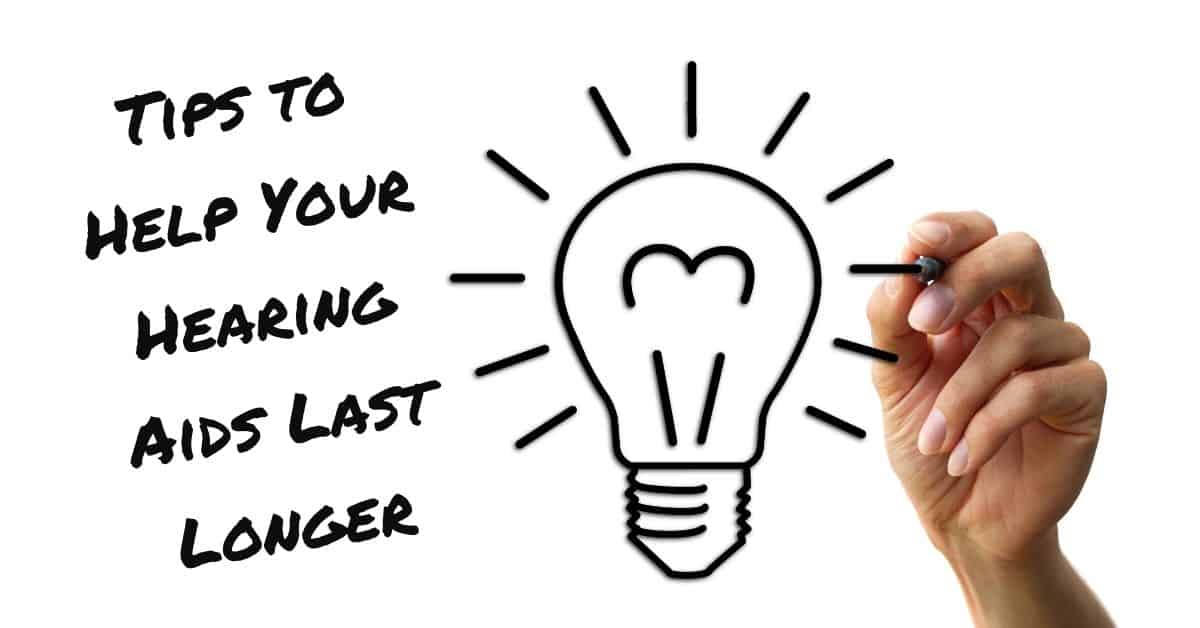
If you have taken the plunge to get new hearing aids, congratulations! As you embark on the path toward better hearing, you will no doubt want to make the most of your investment. Any technological device requires maintenance and care to prolong its life, and hearing aids are no exception.
The good news is that most hearing aids are incredibly easy to use and designed for durability. With minimal upkeep, they should continue to supply you with hearing assistance for years. Yet, it is important to take the necessary steps to make the life of your hearing aids as long as possible. Let’s consider a few tips that will help you make your hearing aids last longer.
Keep Them Dry
The most common problem with hearing aids is that they get moisture inside the unit, causing electrical connections to short. Of course, no one intends to drop their hearing aids in the sink, but that does happen!
If you get your hearing aids unintentionally wet, the first thing to do is to wipe them down with a dry, clean cloth. Absorbing as much surface moisture as possible is an essential first step. The next thing to do is to try to dry the internal components.
A hearing aid dryer is a great tool for this, specifically designed for this purpose. However, some people have had success placing wet hearing aids in a bag of dry rice. That rice has an absorptive property that can sometimes get your units working again.
In addition to accidental submersion in water, you might want to consider using a hearing aid dryer if you live in a very humid environment. That humidity can corrode the metal components of your aids over a long period of time.
Regular Surface Cleaning
You shouldn’t need to do much advanced cleaning of your hearing aids, but removing basic surface debris can keep them in good shape. Earwax is a common culprit, so be sure to wipe it away with a clean, dry cloth if you see a waxy buildup on the surface.
Finer tools are available to remove that layer of earwax that can accumulate right on the edge of the hearing aid that faces the ear canal. Some people have had success putting rubbing alcohol on a tissue or cotton ball and wiping the hard plastic surfaces, but be sure not to put rubbing alcohol directly on the units or any of their components; you won’t want it to seep into the internal mechanisms of the aids.
Battery Maintenance
Keeping the batteries fresh means that you will be prepared for any situation in which your aids become necessary. Although the latest models tend to come equipped with rechargeable batteries or docking stations, many models continue to have replaceable batteries. Keep a few on hand, but make sure they are fresh, as well. If you find that the battery door of your hearing aids is damaged or unable to press back into place, it’s time to seek out maintenance from the provider or manufacturer.
Professional Assistance
If you have issues that extend beyond these basics, it is best to seek out professional assistance. You can always contact your hearing health provider to see what services they can provide in-house and which will require the aids to be sent off to a specialized technician. Some tasks can be completed while you wait, while others need to be mailed to the manufacturer or a certified repair specialist. In either case, don’t try to fix something with your aids that you are not equipped to handle. These specialists have the right tools and techniques to get your hearing aids back in working order.
If you have other needs related to your hearing aids, don’t hesitate to contact us for assistance. With these few basic maintenance tips, you should be able to continue using your hearing aids for many years to come. As technology develops and new features are released, you may want to upgrade your hearing aids at some point. Yet, many people find that the hearing aids they learn to use are the ones they continue to rely on for a long time to come.
